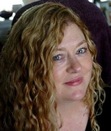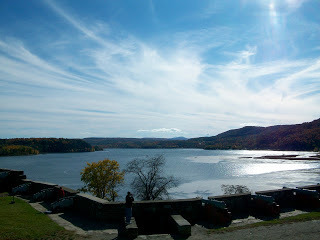 A view of Lake Champlain from the walls of Fort Ticonderoga
A view of Lake Champlain from the walls of Fort TiconderogaFirst for the really exciting news: Connor's book is written! Yes,
Defiant is written. Right now I'm revising it and polishing it — my favorite part of writing. Writing is not getting any easier for me, but rather seems to get harder. Perhaps my expectations for myself are getting higher, or maybe I just keep biting off more in my mind than I can manage in words.
Indian writer Anita Desai said, "Usually a feeling of disappointment follows the book, because what I hoped to write is not what I actually accomplished. However, it becomes motivation to write the next book."
I have that same experience.
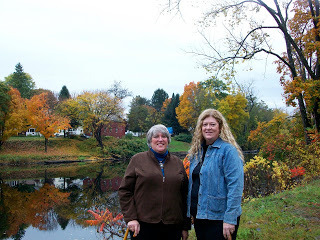 The beautiful Eileen Hannay and I standing on Rogers Island across from the site of Fort Edward
The beautiful Eileen Hannay and I standing on Rogers Island across from the site of Fort EdwardWhat's in my mind is a shadow of some greater, more profound reality that I want to share. What ends up on the page is a shadow of what was in my mind. It can be very frustrating.
However, I'm almost 100 pages in and pleased with the those 100 pages.
I wanted to muse a bit about why I write about Colonial America and particularly the French & Indian War. A reader on Goodreads asked why I would set a book during a period of history that was so horrendously violent and brutal. I'm taking the question seriously and want to answer, because there
is a reason. Or rather there are many reasons.
Romantic fiction has a long tradition that goes back long before Jane Austen. Although many credit her with inventing the romance genre, in truth there were romances in the 16th and 17th centuries that were very popular and available to those who could afford them. Still, the fact remains that much of historical romance focuses on the Regency period, a reader favorite.
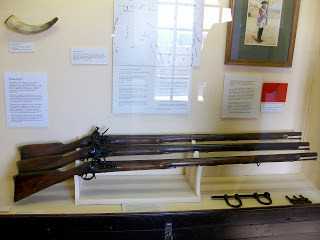 A powder horn, rifled muskets and leg irons from the French & Indian war
A powder horn, rifled muskets and leg irons from the French & Indian warMany readers enjoy escaping into the beauty of the idealized Regency world. For them, romantic fiction is synonymous with beautiful people, opulence, beautiful clothing, romantic adventures, witty banter, comedy of manners, and so on.
So why would I write historical romance that lacks most of those elements? And why would I choose to set a historical romance at what was arguably THE most violent period in North American history?
The easy answer is this: These are the stories that are in my heart to tell.
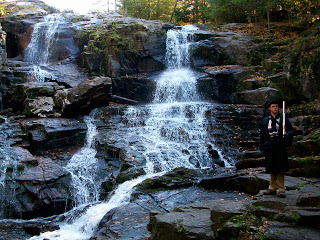 The waterfall where Amalie and Morgan make love for the first time (son Benjamin is guarding it)
The waterfall where Amalie and Morgan make love for the first time (son Benjamin is guarding it)The more complicated answer starts with my own interests and life experience.
As an investigative reporter, I saw and experienced a lot of things people do not see. I met people who were downright evil. I also met saints. I saw violence. I saw dead bodies. I saw a kid with his head shot off. Yes,
off. I know what happens to human brains when they dry. I know the hollow look in a rape victim's eyes and the hate-filled look in the rapist's. I've had two stalkers, gotten death threats, and survived sexual assault as a child.
Sorry, but I can't even fantasize about an idealized world of beautiful people. For me to believe a story, it has to
begin in the world I know — the imperfect world of strife, poverty, and violence. That's true for my I-Team stories, too. (Side note: I think this is true for a lot of paranormal writers and urban fantasy authors, too. The darkness of the paranormal/fantasy world is a kind of metaphor for the evil in our own.)
The fantasy for me is taking that world — and healing it. In real life, I have very little control over the terrible things that happen. The bad guy often gets away. The innocent are often the ones who suffer. The poor get poorer. The rich get richer. Women and children take the brunt of the world's brutality. But in fiction, I can have control of that outcome and make the right thing happen.
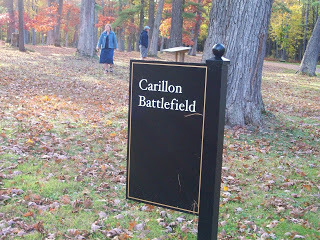
That's part of it.
But I also love this period of history. So many cultures are coming together. An English family on the frontier would have neighbors from Ulster, Germany, Holland, not to mention American Indian nations. The cultural clash and mixing fascinates me as a student of history — my degree and graduate work was in archaeology — and as a lover of languages.
As an archaeology student, I found the golden troves of treasure from the graves of kings and pharaohs to be only of passing interest. What fascinated me most were everyday objects used by everyday people. I fell in love with archaeology as a kid when someone handed me a potsherd from ancient Athens. And there on the ancient clay I could just make out the potter's thumb print.
I felt connected across centuries to a human being who'd devoted a small portion of his/her life to crafting that very pot. The thought stole my breath. I was completely carried away, connected to a sense of humanity that sprawls millennia. It's really hard to explain what that feels like, but it ignited a love in me for the ordinary human being through history.
So many novels, not just in romance, focus on the doings of the wealthy and famous. What about the ordinary people? What about the farm wife and the shopkeeper and the blacksmith? I love the details or everyday people's lives, and I enjoy putting them into stories.
Also, I love nature, and the forests of New York, Pennsylvania, the Ohio Country, and the New England states were vast on a scale that we can't really imagine. Nature, therefore, becomes its own character in the stories.
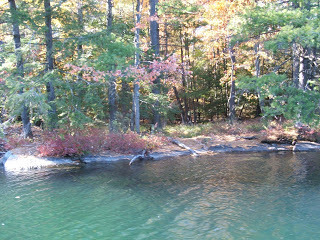 The eastern shore of Lake George, well known to the Rangers
The eastern shore of Lake George, well known to the RangersAll of this rolls together with a specific interest in — no, a
passion for — this time period. Life was raw. It hung by a thread. The French & Indian War has been called the First World War by many scholars. And although people didn't realize it at the time, it was also the war that led to the American Revolution. The latter is unthinkable without the divisions and strife of the former. I could go on forever. I'll stop there.
This all fascinates me, and, yes, I find aspects of it romantic, just as other aspects are tragic and terrifying.
I find that great adversity makes for the creation of strong heroes. Think about World War II movies and the way that era is romanticized. And yet the violence of that war and the events that went with it, such as the Holocaust, is some of the most appalling ever to take place on this planet.
Great heroes arose from that time, men and women who were equal to the challenge of that war, who rose above their own imperfection to make great sacrifices for the sake of others.
The darker the night, the more horrendous the evil, the brighter the dawn, the more heroic the hero. That's how it feels for me, at any rate.
William Falkner once said there were only three kinds of stories worth telling: man vs. man, man vs. nature or man vs. himself. Setting aside his sexist language, I guess I agree.
I find that mixing those three up in a single story — nature, war, internal conflict — makes it challenging to write and worth my time. If I can add a love story to that — and some hot sex — then I feel like it's a book I would want to read.
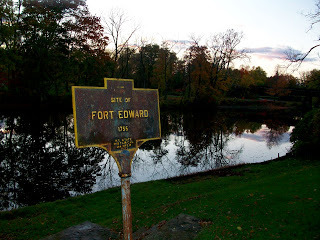 The site of Fort Edward looking across the Hudson River to Rogers Island (Ranger Island)
The site of Fort Edward looking across the Hudson River to Rogers Island (Ranger Island)I've always said that one thing that makes romantic fiction great is variety. People who enjoy light, breezy reads have plenty to choose from, as do people who enjoy cowboys, vampires, shape shifters, firemen, Amish tales, futuristic romance, other worlds and so on. And every romance writer makes her contribution to that variety, adding her own bit of color to the rainbow, so to speak.
My contribution thus far has been Colonial American romance, focusing largely on the French & Indian War and the American frontier, and the I-Team, stories based on my own work as a reporter. I also have some medieval stories in my head that need to come out at some point, as well as some set during the Dickensian period.
I write these books because the stories are in my heart. I write these books because I
want to write them. I can't fathom trying to write 120,000 words that weren't really in me. Talk about difficult!
My hope for every romance reader is that you find lots of books this year that satisfy your heart.
Happy Reading!
Coming soon:
An interview with Eileen Hannay, an expert on Rogers Island
More contests
The MacKinnon's Rangers Reading Challenge

 newest »
newest »
 newest »
newest »
 Wow, beautiful and profound! How fortunate are we that you can take what's in your heart put it written word and share it with us. Thank you!
Wow, beautiful and profound! How fortunate are we that you can take what's in your heart put it written word and share it with us. Thank you!
 I believe that this must be why I enjoy your writing so much, Pamela! After reading one of your books, I cannot get it out of my head for days (even re-reads). Makes me take time to think of what life was like back then and how hard it must have been on a day to day basis.
I believe that this must be why I enjoy your writing so much, Pamela! After reading one of your books, I cannot get it out of my head for days (even re-reads). Makes me take time to think of what life was like back then and how hard it must have been on a day to day basis.  I agree. These were exciting and dangerous times that shaped our nation in ways that most Americans don't realize. It was a period when colonists were starting to consider America, not Europe their home. The seeds of the American Revolution were planted. The beginning of the split between US & Canada was starting and relations between Colonists and Native Americans were changing.
I agree. These were exciting and dangerous times that shaped our nation in ways that most Americans don't realize. It was a period when colonists were starting to consider America, not Europe their home. The seeds of the American Revolution were planted. The beginning of the split between US & Canada was starting and relations between Colonists and Native Americans were changing.








